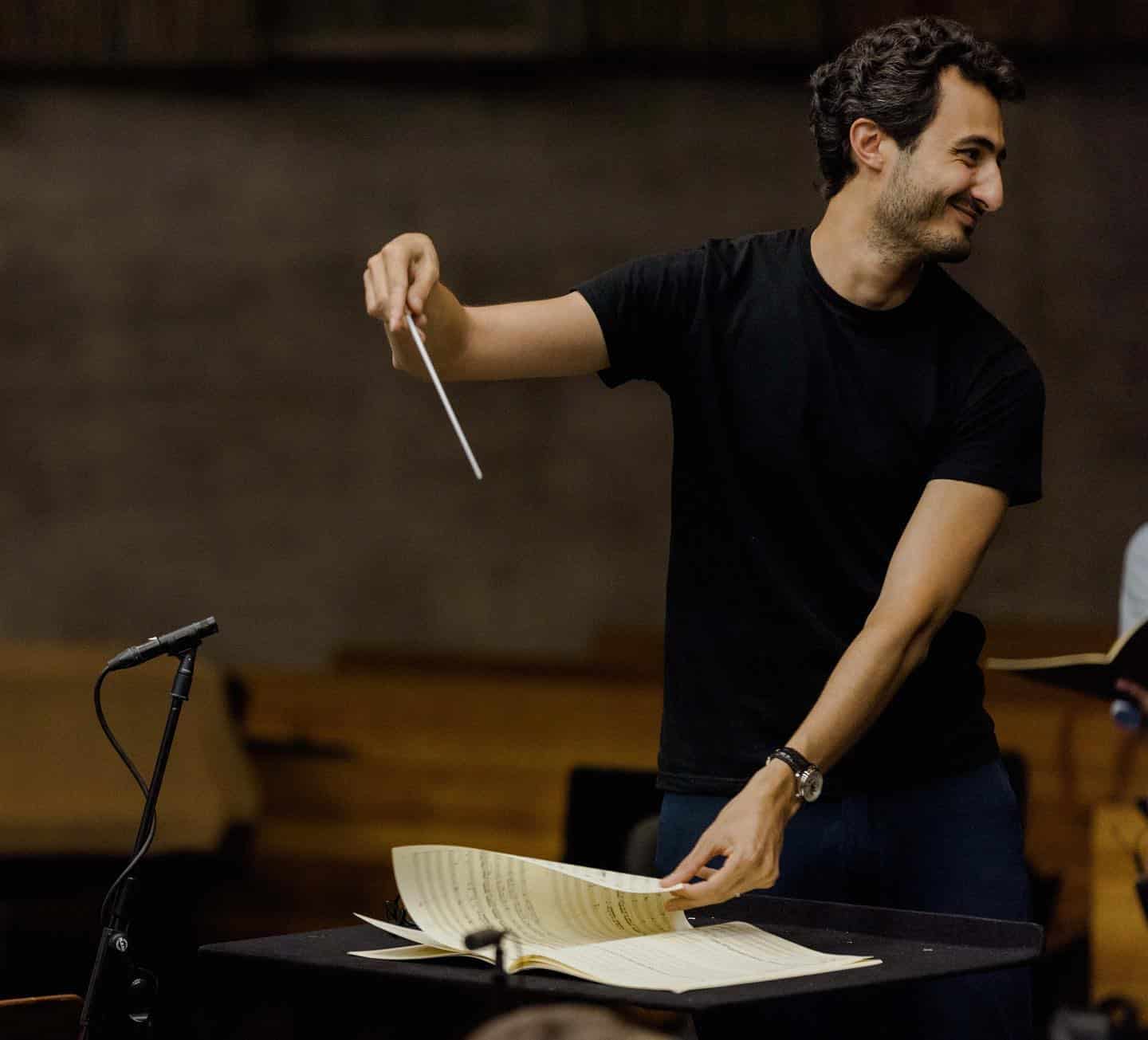How Cambridge fixes its musicology jobs
mainWe’ve been alerted to an advertisement for a ‘Senior University Lectureship in Wagner, Liszt and the Cultural History of Technology at the Faculty of Music, University of Cambridge with effect from 1 January 2016’.
This seems ever-so-slightly case-specific.
There are lots and lots of scholars who specialise in Wagner and Liszt, but probably only one who combines it with ‘the cultural history of technology’.
Word is it has been fixed for one David Trippett, a ‘principal research associate’ at Cambridge. See his specialties here (and below*).
As for due process, equal opportunities and Nolan rules – well, chaps, this is Cambridge. We don’t need all that stuff to judge a new fellow.
UPDATE: A University spokesman said: “The University has advertised to fill an identified need for a specialist academic role within the Faculty of Music. The open application process which includes a rigorous interview stage, is ratified by our HR team and is fully in line with UK employment law.”

* My research focusses on Richard Wagner, and the intersection of German aesthetic thinking with the growth of the natural sciences. Other interests include Franz Liszt and post-Classical Weimar; posthumanism and the philosophy of technology; as well as performance theory, the grey area between improvisation and composition, and musical creativity in the digital age. I welcome applications from potential Ph.D. students in these areas.
When time permits, I am also active as a collaborative pianist, having performed in Germany, Italy, the UK, and on both coasts of the US.





I’m sure that sort of thing happens at most universities, and in most subjects. It’s not particular to Cambridge or to music. They’ll have somebody in mind for a position, and have to go through the motions of following the proper procedure.
Just about sums it up for most jobs in life!!! Have to be seen to follow the process or HR – Human Remains – process first, people last!
Rightly or wrongly, this is fairly common. The job will be informally offered to somebody, and then to satisfy legal requirements it will be advertised with a specification that describes precisely one possible candidate. Sometimes one can tell that this is what is being done when the advertisement is published so close to the application deadline that it is unlikely that many people will see it or be able to complete an application in time. Sometimes somebody who is considering putting in an application will be advised that there’s no point wasting their time over it because the university has already chosen the successful candidate anyway. I suppose the reason people put up with this is because they hope that sooner or later they will become a beneficiary of the system too.
PS. Why is the “I’m not a robot” now in English? I rather liked having it in French.
If you mouseover the icons at the bottom you can still ‘Logga en med Facebook’ 😉
I’m sure that Oxbridge in particular, and other places too, often do artificially narrow job adverts to suit a particular person. However, I’ve worked in academia for a few years now, and my experience is that in most cases job adverts are genuinely seeking out all-comers, even where the department has someone, or a few people identified as potential recruits. In one case that I know of, a person who was widely liked by the staff and who had many academic and personal connections in the department didn’t get the job because they fluffed the interview. An outsider who nobody knew previously got it instead.
I agree with the previous respondents. It happens all the time and we should not be surprised. The person in question seems to be a bright guy with a solid track record. He is ‘known’ to Cambridge, he almost certainly gets on well with his colleagues (hence this job advertisement) and so they want to keep him. I can understand that. As a general rule, however, it might keep to the letter of the law (public sector jobs must be advertised – I think) but not its spirit. I actually saw this advertisement and I remarked to my wife that it was obviously a stitch-up (no offence to David Trippett). The point made by Alexander is a good one. I hope it is made clear to anyone who makes an enquiry that a strong internal candidate will apply. That, at least, is honest and in no way compromises the university (in my view). We all know how time-consuming a job application is. To go through this process when the job is not a ‘real’ one is discourteous to all those who might apply and unbelievably depressing. I have to say that as an academic who has come across this kind of situation more often than I can remember it still leaves an unpleasant taste in my mouth. I wish whoever gets the job the very best of luck – I really do. But, oh for a level playing field!
He brings a 1.5 million euro ERC starting grant with him. That’s why they fixed it.
Why they ‘fixed it’ is not the issue. The issue is that it’s a fix. We either hold these processes in our public institutions (and, remember, even Oxbridge Faculties are still substantially public institutions) to be open and transparent (and accountable), or we don’t.
We should either allow Faculties to make direct appointments (with all the possible problems that might arise), or we should hold the system to at least a degree of procedural integrity. There is no middle ground.
On the contrary: why they did it is absolutely central. It is not old-boy croneyism at play here, but chasing money. You force universities to work like businesses then, well, they work like businesses, however “public” they are.
Again, I repeat. You can justify an abuse of process all you like, it is still an abuse of process. The Faculty can act honestly, or not. If the ‘system’ forces them to advertise, then either challenge the system and change the rules, or understand why the rules exist, and abide by them. It’s a basic principle of civil society that we all agree to be bound by the rules we make.
They acted as honestly as they could under the circumstances. Jobs always have exclusive conditions of one kind or another: in this case, you had to have a fat grant in hand, which reduced the field as far as Cambridge were concerned to one: and they were completely up-front about that from the start. Much more pernicious would be to advertise as if it were open, then waste a lot of time and raise a lot of false hope in the process.
Furthermore, this was blogged as an arrogant Oxbridge abuse of due process and equal opportunities, but it is not that at all. On the contrary, as I said before, motive is everything. Cambridge have effectively said, “If you come to us with an ERC grant then maybe we can find you a job.” Anyone who feels that this wasn’t equal or fair just needs to get themselves an ERC (a fair competition, open to all), make themselves marketable, then play the market like Trippett did.
‘completely up-front about this from the start’? Maybe you are close to the action and know more than the rest of us, but the commentary I’ve been reading suggests that it was precisely the apparent lack of procedural honesty that has irritated the academic community. If Cambridge had been up-front, none of this fuss would have arisen, surely. I might note, also, that if it is to be Dr Trippett’s job as you state, he’s been let down by all this as much as as anyone.
I would like to add to Peter’s last point, about this process also letting down Dr Trippett. I happen to know him professionally, and have no hesitation in saying that he is an outstanding academic both in research and teaching. It is my view that Dr Trippett would probably still be the best candidate for the job were it to have been broader in its description (e.g. “Senior University Lectureship in the Cultural History of Technology in classical music in the long nineteenth Century” would have been quite adequate for the specialist needs of the Faculty). So why does the Faculty feel so anxious, and thus do a shabby recruitment process? Possibly, the fact that Dr Trippett has already had three temporary contracts at Cambridge (the third relates to this project with lots of external funding), after the second of which he took up a position at the University of Bristol (not sure if it is a permanent one or not). Understandably, the Faculty is anxious not to lose him to Bristol or some other institution (in fact, historically, the Faculty has been pretty effective at poaching academics with lots of funding: e.g. Prof. John Rink, previously from RHUL, back in 2009), but still, is the specificity really necessary given Dr Trippett’s conspicuous merit? Or perhaps, the Faculty really wants Dr Trippett, but is also frightened that he may “rock the boat” and challenge existing vested interests as a result of his having so much external funding, and thus so much leverage, and hopes that a shabby recruitment process will make him toe the line (pop music studies seems to be incredibly fashionable at Cambridge at the moment, and, as far as I know, is *not* one of Dr Trippett’s academic interests). Perhaps all this furore is actually doing Dr Trippett a favour, in that the Faculty no longer has a sword of Damocles with which to keep him in line, now that the recruitment situation is so publicly known.
Finally, I would also like to reiterate the point made by a number of comments that, whilst it is no justification, Cambridge is far from unique in academia in shabby recruiting (even though it seems that the media like to focus on Cambridge!). I once wrote to express interest in a position at a distinguished institution, only to be told that the deadline advertised on jobs.ac.uk (the foremost site for advertising academic positions in the UK) was erroneous, and that they had already interviewed and appointed. This “early closure” phenomenon (or “unfortunate mistake” which may just happen to be very convenient for one or more internal applicants) is, in my view, far worse than what Cambridge is doing here.
Re: Cambridge as a “public institution”
see:
https://www.admin.cam.ac.uk/reporter/2015-16/weekly/6406/section1.shtml#heading2-3
NB: the majority of the University’s income is *not* from public funding
By all accounts Trippett persuaded Cambridge to create a job for him. He may be a fine scholar: his arrogance, and his shabby treatment of Bristol University do not inspire admiration. Cambridge Dept of Music did the same to secure the lavish grant of John Rink, for whom a Chair was invented.
I don’t see a problem with the people involved, I see a problem with the process. Would this be an issue in the US? Why can’t departments (and Universities) hire who they want? Why does it have to go through such a ridiculous process through HR to find the best candidate for the job description?
It’s not fair to the people who think they have a chance, and spend time applying. But there were clearly hoops to jump through, paperwork to be done (so much paperwork in the UK) and this was the way to make it happen. No sour grapes as far as I’m concerned, and the Oxbridge issue means nothing to me, but UK bureaucracy is the issue for me. It shouldn’t have to happen.
J.J.
It is definitely the ERC grant, which the grapevine says he shopped around to different universities. However, please don’t lump Oxford and Cambridge together in this respect. I am familiar with several Oxford music searches in recent years that were run with the utmost integrity. (Also worth noting that Cambridge has scored rather low on the REF in this subject in recent years. The ERC grant all but guarantees publications, which will make Cambridge more REFable.)
Under some legislation this is one of the few ways to prevent the gender mainstreaming religion to hijack the process and place the criteria of gender before qualification.
Yes, how absolutely dreadful when a woman is hired–everyone knows she can’t possibly be qualified.
They were going to keep him after his big funded project finished anyway. This just makes it seem as if they didn’t already know that.
During the 1970s I was a member of a German university faculty when it was looking for a philosophy professor to fill a vacant chair. I was saddened to see how many overseas Germans applied for the job whose qualifications and experience was far superior to the candidate ultimately chosen.
This led me to believe that the then current vogue in new openness in academia and the business world was a deceptive mechanism whereby the actual power base ensured its own continuity.
I also realized, and which later expressed itself politically in the concepts of freedom, equality and fraternity, that few individuals would dare to act on principles that ensured universal values entrenched themselves within an institution.
Recently I had again refreshed my mind on the points that conspirators follow when ensuring a potential rival is permanently silenced.
1. Defame the victim’s professional competence, mental balance, truthfulness, etc.
2. Reward collaborators from the victim’s group.
3. Weld together the pack of prosecutors.
4. Proclaim authority of the corporation.
5. Spread defamation through the victim’s personal links and loyalties.
6. Isolate the victim by giving him the silent treatment.
7. Usually this leads to the victim’s resignation which is taken as proof of guilt. Dismissal occurs if the victim refuses to resign.
8. A strong victim highlights the moral standards of society.
9. People in authority perpetuate their own types because no one wishes to be shamed by his successor.
10. Employees are as courageous as their security of livelihood and reputation permits.
11. A governing body of an institution devoted to truth and justice is corrupt if it obstructs enquiry into its stewardship.
Perhaps we have reached a point in our “freedom and democracy” mantra that now requires a solid re-think.
Still, the fact that Wagner is on the reflective program gives hope it will not degenerate into bolstering of works by the anti-Wagnerians who still cannot resist making that connection: Wagner-Hitler-Auschwitz, without the latter being subjected to open enquiry, without the fear of legal and professional sanctions destroying a questioner’s career and/or social standing.
Mr. Toben writes: “…by the anti-Wagnerians who still cannot resist making that connection: Wagner-Hitler-Auschwitz, without the latter being subjected to open enquiry…”
Regarding Auschwitz being “subjected to open inquiry, “it should be noted that Mr. Toben spent 9 months in prison in Germany for Holocaust denial, and 3 months in prison in Australia for inciting racial hatred. Freedom of speech is very important, but it should be carefully controlled in cases where falsehoods can cause large groups of people grievous suffering or harm.
To judge by Cambridge staff and grad the key for advancement would be sleeping around .
This is fairly common at “top” UK universities and on the Continent. It is pretty rare in the US–here, in my experience, it would be considered scandalous or just against the rules. If the candidate is so good, he should be equal to the competition and then a sympathetic committee could choose him on the margin.